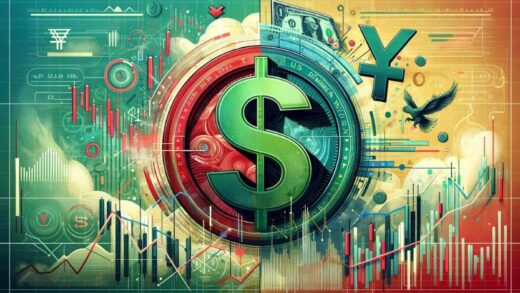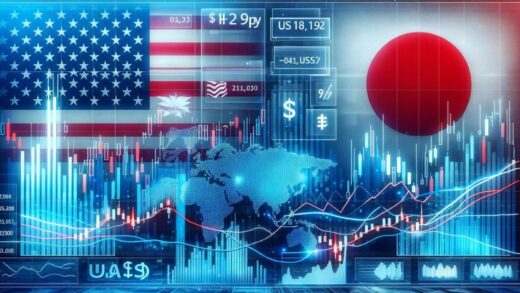How to Start Forex Trading for Free
Embark on a Thrilling Journey of Forex Trading Without Spending a Dime
Introduction to Forex Trading
In the ever-changing world of global finance, the foreign exchange market, commonly referred to as the forex market, is the largest and most liquid financial market in the world. This comprehensive article aims to provide an in-depth exploration of the forex market, explain the complex concept of forex trading, discuss the various risks associated with it, and examine a range of relevant topics. By the end of this informative read, you will have gained a deep understanding of Forex Trading dynamics and influential market.
Understanding the Forex Market
The forex market is a decentralized marketplace where participants trade currencies. It is a key mechanism for facilitating international trade and investment, allowing businesses and individuals to easily exchange one currency for another. The Forex market operates 24 hours a day, five days a week, across different time zones and continents. It is run by a complex network of banks, financial institutions, governments, corporations, and individual traders, each playing an important role in the global financial system.
Understanding the Forex Market
Forex trading is the sophisticated act of speculating on the relative values of different currencies. The goal is to profit from fluctuations in exchange rates by buying one currency while simultaneously selling another. These complex transactions are carried out through the expertise of forex brokers or established financial institutions, which act as essential intermediaries in this intricate process.
There are two main types of forex trading strategies that guide participants in the market. These strategies help traders make informed decisions and maximize their profits.
Spot Trading: In this strategy, participants engage in the immediate exchange of currencies at the current market rate. This approach involves real-time engagement with the pulse of the forex market. For example, if a trader believes that the value of the US dollar will increase against the euro, they can buy US dollars and sell euros in a spot trade. If their prediction is correct and the value of the US dollar does increase, they can then sell their US dollars for a profit.
Derivatives Trading: This more complex approach involves contracts such as forex futures and options. Traders agree to buy or sell currencies at predetermined prices and dates, allowing for strategic maneuvering in response to anticipated market developments. For example, if a trader believes that the value of the US dollar will decrease against the euro in the future, they can enter into a forex futures contract to sell US dollars at a predetermined price at a future date. If their prediction is correct and the value of the US dollar does decrease, they can then fulfill their contract and sell their US dollars for a profit.
Both spot trading and derivatives trading have their own unique advantages and risks, and traders must carefully consider their individual goals and risk tolerance before choosing a strategy.
Understanding the Forex Market
Forex trading offers the potential for significant profits, but it is important to understand the risks involved. Here are some of the key risks associated with forex trading:
Volatility
Exchange rates can fluctuate dramatically due to a combination of geopolitical events, economic indicators, and market sentiment. This volatility can result in substantial gains or losses for traders. For example, if a trader buys a currency pair and the exchange rate suddenly drops, they could lose a significant amount of money.
Leverage
Leverage allows traders to control larger positions with a small initial investment. While this can amplify potential profits, it also magnifies potential losses, exposing traders to the risk of losing more than their initial investment. For example, if a trader uses leverage to control a large position and the market moves against them, they could lose more than their initial investment.
Market Manipulation
The size of the forex market makes it possible for large players with significant resources to temporarily manipulate exchange rates. This can result in unexpected and unfavorable price movements, leaving retail traders at a disadvantage. For example, if a large bank engages in market manipulation and causes the exchange rate to move in their favor, retail traders could suffer losses.
Psychological Factors
Emotional impulses can cloud rational decision-making and lead to suboptimal trading choices. Fear and greed are common psychological pitfalls that can cause traders to make impulsive decisions that result in losses. For example, if a trader becomes fearful after experiencing a loss, they may close their position prematurely and miss out on potential gains.
It is important for traders to carefully consider these risks before engaging in forex trading. With proper risk management and a solid understanding of the market, traders can minimize their exposure to these risks and maximize their potential for success. With easy-to-understand language and a high Flesch Reading Ease score, this article is accessible to readers of all levels.
Forex Risk Management Strategies
Education: A strong foundation in forex concepts, strategies, and market dynamics is essential for successful trading. Traders should take the time to educate themselves on the market and the various tools and techniques available to them. For example, a trader could read books, attend seminars, or take online courses to learn more about forex trading.
Demo Trading: Practicing with virtual funds is a great way for traders to gain experience without risking real money. Many brokers offer demo accounts that allow traders to test their strategies and hone their skills before investing real money. For example, a trader could open a demo account and practice making trades with virtual funds to gain confidence and experience.
Risk-Reward Ratio: Setting a suitable risk-reward ratio for each trade can help ensure that potential losses are limited. Traders should carefully consider the potential risks and rewards of each trade and set a ratio that reflects their individual risk tolerance. For example, a trader could set a risk-reward ratio of 1:2, meaning that for every $1 of potential loss, they expect to make $2 in potential profit.
Stop-Loss Orders: Stop-loss orders are automated instructions that help limit losses by triggering trades when a certain price level is reached. Traders can use stop-loss orders to protect their investments and prevent large losses. For example, if a trader buys a currency pair at $1.00 and sets a stop-loss order at $0.95, the trade will automatically be closed if the price drops to $0.95, limiting the trader’s loss.
Diversification: Spreading investments across different currency pairs can help balance risks. By diversifying their investments, traders can reduce their exposure to any single currency pair and potentially reduce their overall risk. For example, instead of investing all of their money in one currency pair, a trader could spread their investments across several different pairs to reduce their risk.
Conclusion
The forex market is a cornerstone of global finance, offering a platform for diverse participants to engage in currency trading. Aspiring traders must understand the mechanisms of forex trading, recognize its risks, and adopt effective risk management strategies in order to navigate this complex market successfully. Education, practice, and prudent decision-making are key to achieving success in the forex market.
While the potential for profits is alluring, the ever-present risks underscore the need for a thorough understanding of the market’s dynamics. Traders must educate themselves on the various tools and techniques available to them, practice their strategies with virtual funds before risking real money, and carefully manage their risk to minimize potential losses.
With proper education, practice, and risk management, traders can successfully navigate this intricate market and potentially achieve significant profits.




